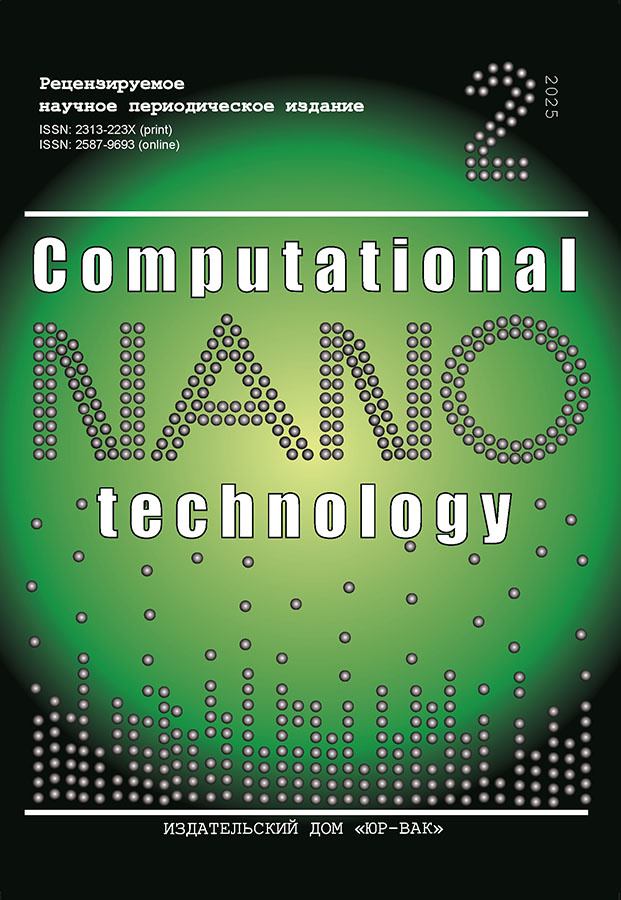Application of artificial intelligence tools in analyzing the problem of increasing the motivation of age groups of students in the system of additional professional education
- Authors: Smolentseva T.E.1, Prikhodko N.A.1
-
Affiliations:
- MIREA – Russian Technological University
- Issue: Vol 12, No 2 (2025)
- Pages: 119-128
- Section: INFORMATICS AND INFORMATION PROCESSING
- URL: https://journals.eco-vector.com/2313-223X/article/view/689242
- DOI: https://doi.org/10.33693/2313-223X-2025-12-2-119-128
- EDN: https://elibrary.ru/RAYKQA
- ID: 689242
Cite item
Abstract
The article investigates the peculiarities of motivation of students of different age groups in the system of additional professional education (APE), with a focus on identifying individual barriers and needs of each category. The authors note that traditional methods of organizing the educational process often do not take into account the specific characteristics of adolescents, youth, adults and the elderly, which leads to a decrease in motivation and ineffective training. The aim of the article is to demonstrate how the use of modern artificial intelligence (AI) tools, in particular chatbots capable of analyzing tone, detecting the emotional state of the user and providing personalized recommendations, can be an effective means of increasing motivation and engagement of learners of all age groups. The research relies on an integrated methodological approach that includes both quantitative data obtained through questionnaires and qualitative results from interviews and practical test runs of the chatbot. This interdisciplinary approach allows building a correlation between emotional factors, information perception characteristics, and learning outcomes. The results of the study confirm that the implementation of adaptive AI solutions contributes to a more flexible and customized educational environment where emotional support, interactive tasks, and pacing adjustments take into account the unique characteristics of each age group. The authors conclude that further development of such technologies has the potential to significantly transform the system of additional professional education, making it more effective, personalized and open to innovation.
Full Text
About the authors
Tatiana E. Smolentseva
MIREA – Russian Technological University
Author for correspondence.
Email: smoltan@bk.ru
ORCID iD: 0000-0003-4810-8734
SPIN-code: 2383-6811
Dr. Sci. (Eng.); Head, Department of Applied Mathematics
Russian Federation, MoscowNikita A. Prikhodko
MIREA – Russian Technological University
Email: docfr10@yandex.ru
ORCID iD: 0009-0000-1166-7896
SPIN-code: 3103-7511
Department of Practical and Applied Computer Science
Russian Federation, MoscowReferences
- Shobonov N.A., Bulaeva M.N., Zinovieva S.A. Artificial intelligence in education. Problems of Modern Pedagogical Education. 2023. No. 79-4. Pp. 288–290. (In Rus.). EDN: IPRJAG.
- Lakhmanova I.E., Rodionov V.S. Issues of introducing artificial intelligence in the system of higher education. In: State and Business. Directions of socio-economic development. Proceedings of the XV International Scientific and Practical Conference. (St. Petersburg, April 26–27, 2023). In 2 vols. St. Petersburg: RANEPA, 2023. Pp. 171–185. EDN: TZWNGM.
- Polipovich S.A., Shriner B.A., Chikova O.A. Formation of motivation in teaching schoolchildren the basics of artificial intelligence. Pedagogical Informatics. 2021. No. 3. Pp. 25–33. (In Rus.). EDN: HPRYQX.
- Voloshina S.E., Sharandin S.E. Application of artificial intelligence in professional education. Pedagogical Bulletin. 2022. No. 24. Pp. 22–24. (In Rus.). EDN: QHTRXN.
- Tarasyuk N.A., Chubov S.A. Application of artificial intelligence capabilities in modern professional education based on the realization of the contextual approach. In: The way to science. Modern national economy: Young scientists new view. Proceedings of the II International Scientific and Practical Conference (Orel, April 21–22, 2022). Orel: Orel State University named after I.S. Turgenev, 2022. Pp. 437–447. EDN: IUUMWM.
- Syabitova K.S., Filatova O.N. Artificial intelligence in the system of professional education. In: Professional self-determination of youth of the innovative region: Problems and prospects. Collection of articles on the materials of the All-Russian (national) scientific-practical conference (Krasnoyarsk, November 14–25. 2022). Part 2. Krasnoyarsk; Chelyabinsk; Nizhny Novgorod; Moscow: Krasnoyarsk State Agrarian University, 2023. Pp. 132–134. EDN: MEISQW.
- Tan M.J.T., Maravilla N.M.A.T. Shaping integrity: Why generative artificial intelligence does not have to undermine education. Frontiers in Artificial Intelligence. 2024. Vol. 7. doi: 10.3389/frai.2024.1471224. EDN: EHYLMK.
- Arslanova K.Z., Amangeldiyev A.Zh., Aitpayev A.T. The impact of AI on student motivation and cognitive skills in higher education. Science Bulletin. 2024. Vol. 2. No. 11 (80). Pp. 1034–1052. EDN: WNJWHP.
- Shrivastava R. Role of artificial intelligence in future of education. International Journal of Professional Business Review. 2022. Vol. 8. No. 1. P. e0840. doi: 10.26668/businessreview/2023.v8i1.840. EDN: WHFBCF.
- Fomina E.E., Koshkina G.V., Ivanova U.A. Artificial intelligence in education: risks and problems. In: Digital, computer and information technologies in science and education. Collection of articles of the II Interregional scientific-practical conference with international participation (Bryansk, November 14–15, 2024). Bryansk: Bryansk State University named after Acad. I.G. Petrovsky, 2025. Pp. 89–92. EDN: THJAKY.
- Safontseva N.Yu., Krivenko-Bakhmutskaya Yu.N. Artificial intelligence in education: technological meanings and value risks. Values and Meanings. 2025. No. 1 (95). Pp. 19–37. (In Rus.). doi: 10.24412/2071-6427-2025-1-19-37. EDN: ZRBVGH.
- Andreeva E.A., Dontsov A.V. Artificial intelligence in modern education. Economic and Humanities Research Regions. 2025. No. 1. Pp. 8–11. (In Rus.). EDN: TPHSDM.
- Simonova N.V. Artificial intelligence in education: Prospects and possibilities of application. Information and Communication Technologies in Pedagogical Education. 2024. No. 6 (93). Pp. 73–79. (In Rus.). EDN: BWWFYQ.
- Jia F., Sun D., Looi C.K. Artificial intelligence in science education (2013–2023): Research trends in ten years. Journal of Science Education and Technology. 2024. Vol. 33. No. 1. Pp. 94–117. doi: 10.1007/s10956-023-10077-6. EDN: COJWWT.
- Barakina E.Yu., Popova A.V., Gorokhova S.S., Voskovskaya A.S. Digital technologies and artificial intelligence technologies in education. European Journal of Contemporary Education. 2021. Vol. 10. No. 2. Pp. 285–296. doi: 10.13187/ejced.2021.2.285. EDN: HPQKEU.
- Swindell A., Greeley L., Farag A., Verdone B. Against artificial education: Towards an ethical framework for generative Artificial Intelligence (AI) use in education. Online Learning Journal. 2024. Vol. 28. No. 2. doi: 10.24059/olj.v28i2.4438. EDN: KNCUPG.
Supplementary files










